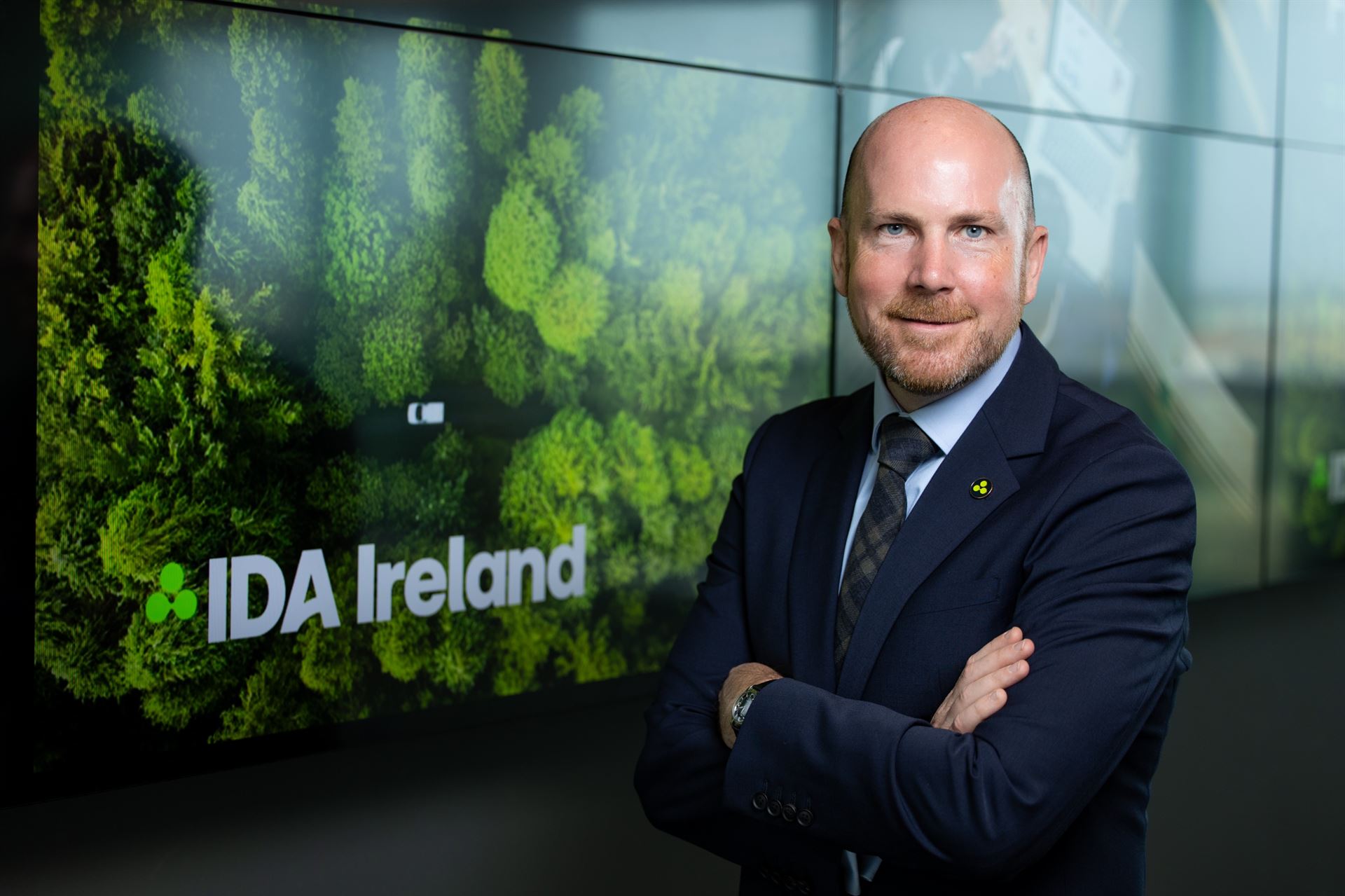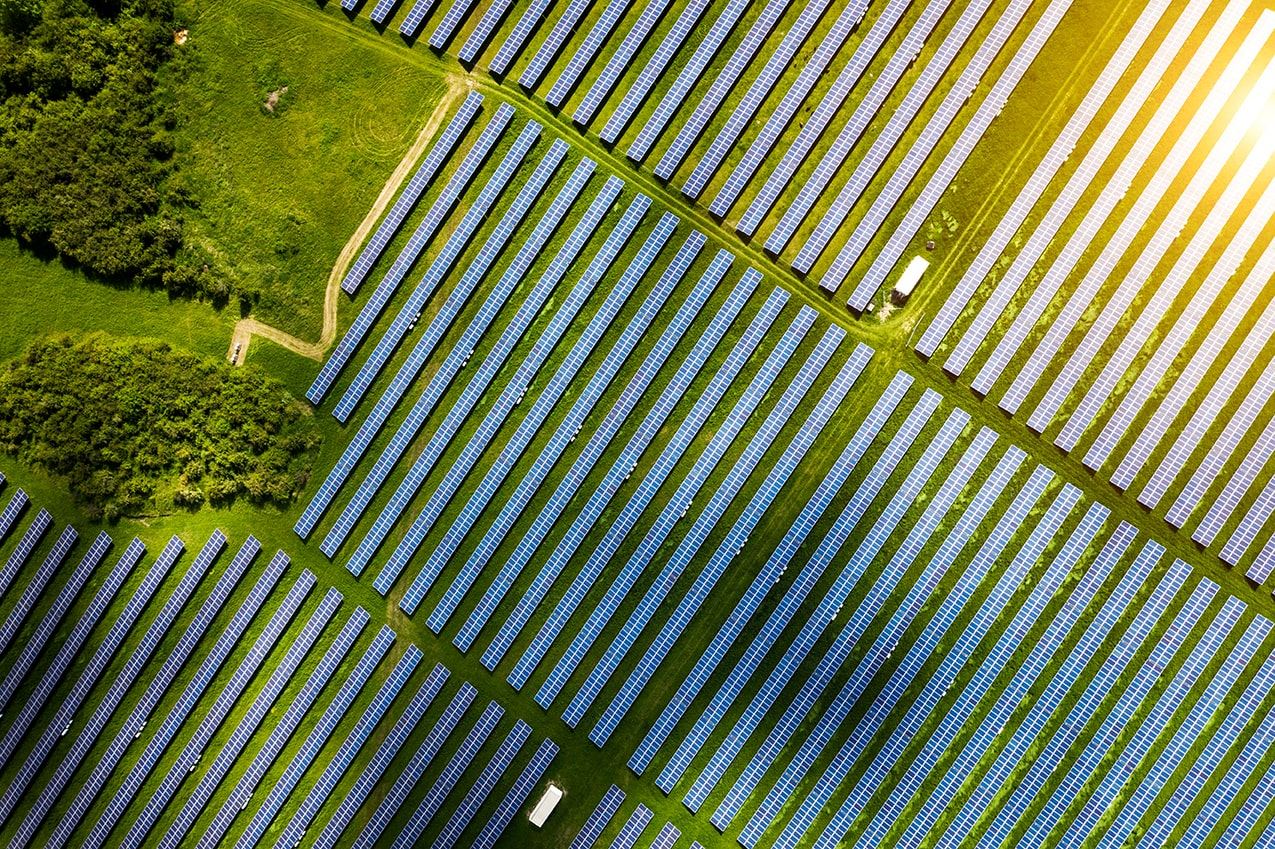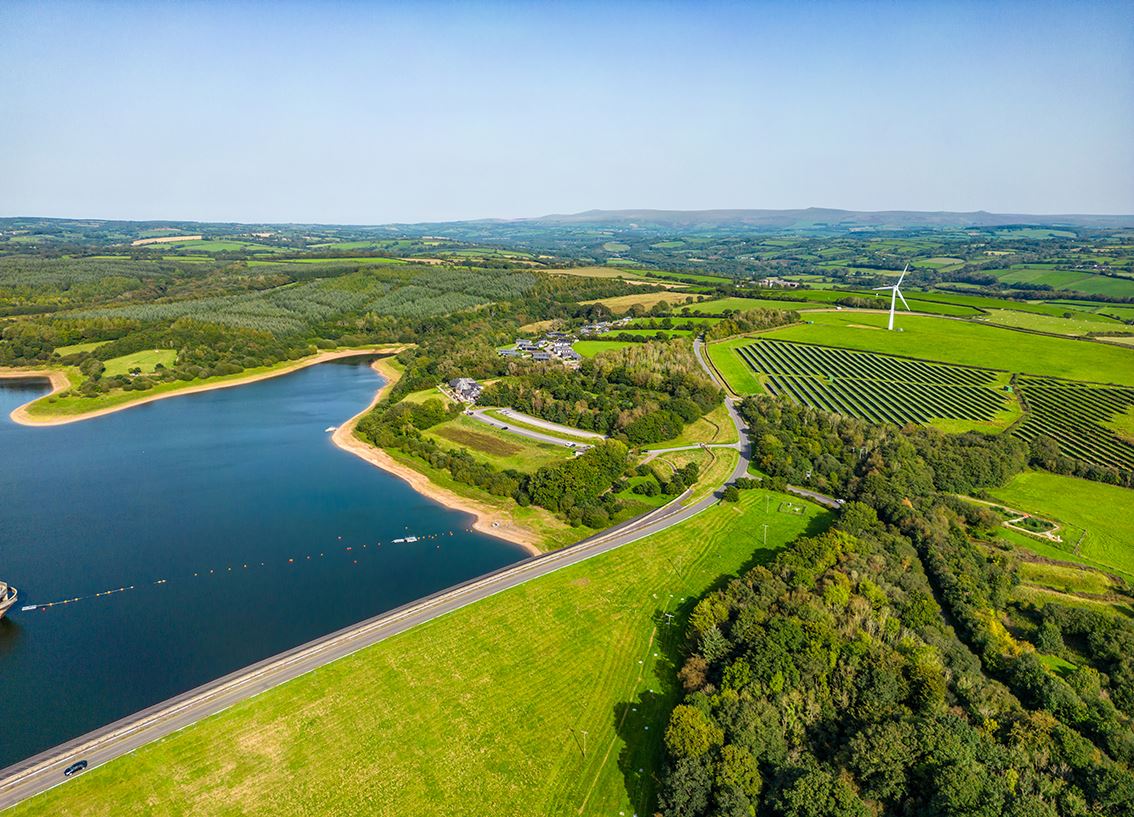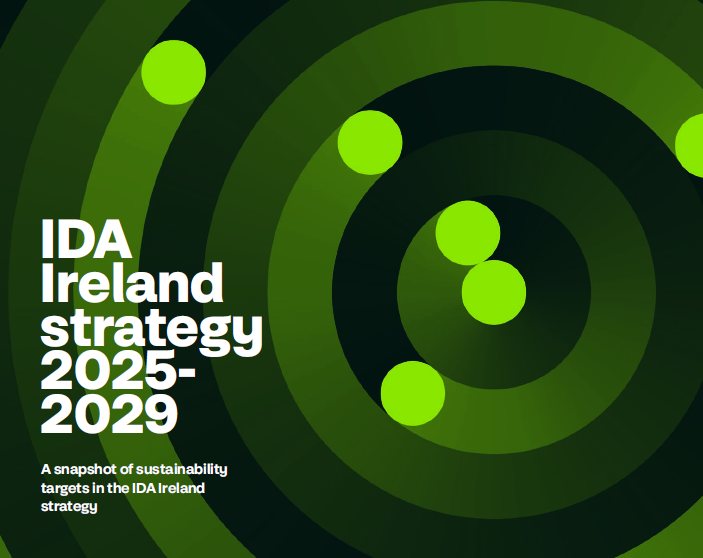
Download the full version of Issue 1: Green Jersey here
The sustainability imperative
Matt Kennedy, IDA Ireland’s Global Head of Client Transformation, outlines the agency’s sustainability approach and how it enables clients to make their operations more resilient.When we talk about sustainability, we tend to apply a narrow lens and think of it as referring to reducing greenhouse gas emissions and lowering environmental footprints. But for companies, it has a second meaning: a sustainable business is one that’s built to last: resilient enough to withstand external shocks, and adaptable enough to change and evolve in response to market and customer demand.
We believe the two kinds of sustainable businesses are interlinked: one that meets its climate objectives by managing its finite resources, and one that prepares itself to be able to adapt to uncertain and volatile conditions.
For foreign direct investment, a sustainable business is one that considers actions in a long-term horizon. In Ireland, we’re fortunate to have welcomed more than 1,800 overseas businesses to stablish operations here, with one-third of them having been in Ireland for more than 20 years.
The imperative for businesses to change has accelerated. Many find themselves at a crossroads, they are grappling with how to integrate climate goals into their business – and in doing so, make their operations more cost-efficient. At the same time, they want to become more resilient to external forces or shocks.
Many leaders are asking themselves fundamental questions: are their processes and ways of working fit for purpose in the years ahead? Do their teams have the right mix of skills that will allow them to adapt to a changing environment? Are their supply chains robust enough to cope with unexpected disruptions? Do those businesses need to innovate more to stay relevant in their market, or adopt technology that can make their operations more efficient?All businesses need to adapt, change, transform to remain relevant, competitive and also attract and retain talent.
We know these questions well, because as an inward investment agency, we are having strategic conversations with these companies. We hear how they want to adapt, and we see our role as a duty of care to listen, understand and interpret their needs and help them respond accordingly.
As a partner, we have always looked for ways to deepen the relationships with clients through ongoing dialogue, to ensure we continue to deliver over the long term. So just as our clients need to transform, we can best work with them into the future by also being adaptable to changing conditions.
From this point on, rather than thinking in terms of vertical industry sectors, we are now reorganising to provide support across businesses, focused on the four drivers of innovation, sustainability, digitalisation, and talent development. IDA Ireland’s new client transformation division will provide tailored, integrated supports to help businesses to respond and become resilient in the face of the societal and technological challenges they face. We are providing specialist subject matter expert advice to clients in RD&I, sustainability and skills development, and we work with them to create a solution for their needs.
The businesses grow within Ireland: they adopt innovative processes; they invest in climate-resilient buildings; they shape rigorous and robust supply chains; and match talent to their future skills needs. In this way, their Irish sites can become beacons of best practice in innovation, sustainability, digital solutions, and talent development. And as the 1,800 companies we partner with look to understand how to grow and transform, we remain committed to them and will listen, understand and interpret, and help them respond to their needs.If we can deliver on decarbonisation opportunities and improve client sustainability, then we deliver on our clients’ corporate objectives and on our national objectives.

Going green
Facts, figures and stories behind IDA Ireland client decarbonisation projects| Name: Zimmer Biomet Industry: medtech Zimmer Biomet’s Irish operations generate close to 8% of their annual energy through 2,400 1MW solar PV panels installed on the roof at both its Irish sites. Since 2014, the company has a zero waste to landfill policy. By using digital tools to replace paper, Zimmer saves 18,355 pages per day, or more than 6,600,000 pages every year: equivalent to more than 2,000 trees. “Sustainability is a personal focus of mine, and one for the company as well,” says Tom O’Carroll, Director of Manufacturing Ireland, Zimmer Biomet. |
Name: Lilly Industry: pharmaceuticals Unveiled in 2021, Eli Lilly solar project was at the time the single largest solar farm in the Republic of Ireland, a 5.6MW power, 16-acre facility of 12,600 panels to power a significant proportion of the plant in Kinsale, County Cork. The ground-mounted solar farm will enable Lilly to reduce its annual use of electricity from carbon sources by almost 6GWH and its carbon footprint by 2,350 tonnes, equivalent to nearly 5,000 acres of forest to reduce that much carbon. The company has since added an additional 10 acres to the existing solar farm. |
| Name: MSD Industry: pharmaceuticals MSD’s ambitious goal is to become carbon neutral across its operations in 2025. In partnership with the electricity supplier ESB, MSD built a 7.3MW ground-mounted solar PV array at Ballydine, County Tipperary. In September 2022, it opened what was at the time Ireland’s largest self-generation solar project, generating enough electricity to power 5,000 houses. MSD’s plant now sources nearly 20% of its energy needs. |
Name: Astellas Industry: pharmaceuticals Committed to achieving Net Zero globally by 2050, Astellas pharma in Kerry achieved a 95% reduction in C02 emissions since 2005, with 64% renewable generation onsite from solar electric and thermal panels, wind energy, and biomass using wood chips derived from the waste wood of forestry industry within 50km of the plant. The Kerry site has 20 charging points for electric cars, and also lowered its energy use through optimal building fabric installation and HVAC design. |
Help at hand
- 70% of IDA’s top 100 largest clients have made net zero pledges
- 15 of the top 40 IDA Ireland clients companies achieved A ratings on sustainability
Feasibility and research grants, plus tax incentives for R&D activity
Support 50 environmental transformations for lowering client carbon emissions

Ireland’s plan
The Irish Government’s climate targets- -50% reduction in CO2 emissions by 2030
- NET ZERO by 2050
Emissions reduction goals2030 Target 51% reduction in GHG emissions (vs 2018 levels) 2050 Target Reach net-zero emissions, aligning with the Climate Action and Low Carbon Development (Amendment) Act 2021. |
Sectoral emissions targetsThe Government’s plan sets specific emissions ceilings for various sectors to ensure collective progress: Electricity: 75% reduction in emissions by 2030 and transition to renewables. Transport: 50% reduction by 2030 Industry: 35% reduction Built environment: 45% reduction Agriculture: 25% reduction, encouraging sustainable farming practices and improved land use. Land use, land use change, and forestry (LULUCF): Aims to transform this sector into a net carbon sink by 2030 through afforestation and peatland restoration. |

IDA Ireland strategy 2025- 2029
A snapshot of sustainability targets in the IDA Ireland strategy
- Reduce IDA Ireland client carbon emissions by 35%
- Establish Ireland as a leading location for smart, sustainable manufacturing and intelligent, digitalised services
- To grow the level of investment in sustainable business practices and processes and in developing new sustainability and energyefficient technologies
Aims
|
Actions
|
How IDA Ireland can help you
As Ireland’s inward investment promotion agency, IDA Ireland is by your side to help you set up and grow your business in Ireland.
| Dedicated IDA Ireland Account Manager | Connections with industry associations | Funding programmes and incentives |
| Long-term after-care service supporting your Irish operation into the future | Collaboration with 3rd level institutions | PR and media support |
| Introductions to peer companies | Hosting tailored fact-finding visits | Employment permits and visas |
| Access to government | Information gathering, analysis and evaluation | Property solutions |
